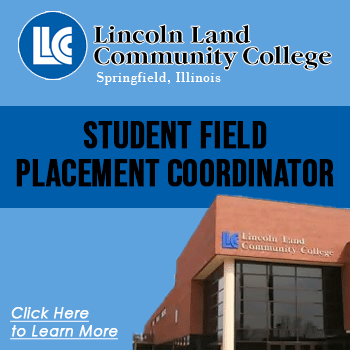This job has Expired
BrainHealth Project Postdoctoral Fellowship
Job Description
Posting Details
Posting Details
| Posting Number | S04685P |
|---|---|
| Position Title | BrainHealth Project Postdoctoral Fellowship |
| Functional Title | Research Associate |
| Department | CBH Chapman |
| Salary Range | Commensurate with Experience |
| Pay Basis | Monthly |
| Position Status | Regular full-time |
| Location | Dallas |
| Position End Date (if temporary) | |
| Posting Open Date | 02/07/2023 |
| Posting Close Date | 06/30/2023 |
| Open Until Filled | No |
| Desired Start Date | 09/05/2023 |
| Job Summary | Fellows will work with collaborating scientists on analyzing the prodigious and growing imaging and behavioral data from the Brain Health Project, in which the first 20,000 participants have already registered. Postdocs will be encouraged to develop and pursue their own lines of scientific enquiry under the guidance of their collaborating scientists who are part of a thriving team of researchers at the Center for BrainHealth, with an emphasis on dynamic changes/improvements in brain function over time, and their behavioral correlates. |
| Minimum Education and Experience | Ph.D in a related field. |
| Preferred Education and Experience | PhD scientists with experience in one or more of the following: cognitive neuroscience, human functional brain imaging, psychology, neurology, psychiatry, machine learning, data visualization, and data integration methods across disparate data streams. |
| Essential Duties and Responsibilities | We welcome applications from PhD scientists with experience in one or more of the following: cognitive neuroscience, human functional brain imaging, psychology, neurology, psychiatry, machine learning, data visualization, and data integration methods across disparate data streams. Fellows will work with collaborating scientists on analyzing the prodigious and growing imaging and behavioral data from the Brain Health Project, in which the first 20,000 participants have already registered. Postdocs will be encouraged to develop and pursue their own lines of scientific enquiry under the guidance of their collaborating scientists who are part of a thriving team of researchers at the Center for BrainHealth, with an emphasis on dynamic changes/improvements in brain function over time, and their behavioral correlates. Fellows will be provided opportunities to attend and contribute to the Frontiers in Brain Health weekly seminars as well as the many other colloquia and lectures in the extensive UT Dallas and UT Southwestern campuses. |
| Physical Activities | |
| Working Conditions | |
| Additional Information | After the probationary period, this role may be eligible for a hybrid (partly remote/partly in office) work schedule, subject to business need and manager approval. May be required to use personal computer and other standard office equipment. Must be located within the DFW Area and have the ability to be on campus with 24 hours of notice. A UT Dallas Remote Work Agreement will be required within 14 days after approval. |
| Special Instructions Summary | Candidates should submit a vita/resume, a cover letter outlining their own motivations, list three references on the application, and proposed research direction within one or more of the core areas outlined below by June 30th, 2023. This proposed direction can be uploaded as “Other Document” during the application submission. The broad research areas and the scientists leading them are: · The Brain Physiology Brain Trust, led by Drs. Bart Rypma, Monroe Turner, and Jeff Spence, is developing cutting-edge imaging techniques that allow us to explore, in the finest detail ever possible in humans, the complex systems by which oxygen rich blood delivers the essential fuel required for the brain to maintain peak performance. These technologies open a window through which we can view these systems as they are working, assess their efficiency, and how it can be improved through brain health potentiators, including nutrition, diet and exercise and sleep. This information will feed into a data-based profile that informs us and our participants of their brain health and performance and is the basis for the benchmarks and strategies mentioned above that will be advanced here to inform work around the world. · The Neuroinformatics Brain Trust core, led by Drs. Jeffrey Spence and Vince Calhoun, will take advantage of artificial intelligence (AI) and machine Learning. The goal of individualized brain health — collecting data from an individual, assessing an individual’s brain health, and predicting a brain health trajectory based on lifestyle and potential interventions tailored to the individual — requires a neuroinformatics core. This is a team of data scientists and neuroscientists collaborating to distill terabytes of information and, through machine learning algorithms, deliver meaningful and actionable information to each individual in real time. Through our development of the BrainHealth Project dashboard and sophisticated imaging metrics at the Sammons BrainHealth Imaging Center, we will be able to predict an individual’s brain health trajectory both with and without future intervention and/or change in behavior. By doing so, an individual will be able to make informed decisions about how they would like to take charge of their own future brain health. Central to this neuroinformatics mission is a data infrastructure, comprising not only the personnel but also data storage and computing power to implement machine learning models of brain health, as well as a mechanism by which information is passed on to the individual in real time. Translation of advanced analytics also requires extraordinary design, domain knowledge and discipline to keep things simple, engaging and actionable. · The BrainHealth Data Visualization Core, led by Drs. Jeremy Gray, Julie Fratantoni, and Aaron Tate will bring to life the remarkable, dynamic nature of our brain changes. Brain changes happen continually but seeing is believing. Now that we are entering the era of big data, we seek to design a visual interface to not only reveal the potential but also the sign of earliest problems so these can be proactively pre-empted. Our brain makes small changes moment by moment, day by day. We want to be able to visualize for individuals how these small changes can add up to something greater than they believed possible. This would allow us to motivate what it truly means to be “architects of your own brain’ as the change is visualized and even the prediction if they do not take action. Most neuroscience research has focused on collecting and visualizing date depicting brain losses due to age, injury and disease progression. Visualization can provide a powerful guide in unlocking our brain potential and it may also inform public policy. Brain skills are the key to our economic and societal wellbeing- just imagine the impact at all levels of society as individuals, communities, companies, and entire countries become motivated by the visualization of their invisible brain systems – being strengthened in real time. This core will lead efforts to design vivid images of the brain improving. We are entering a new era for the future as we become able to display how an individuals’ brain gain exponentially contributes to our collective brain economy and wellbeing. |
| Important Message | 1) All employees serve as a representative of the University and are expected to display respect, civility, professional courtesy, consideration of others and discretion in all interactions with members of the UT Dallas community and the general public. 2) The University of Texas at Dallas is committed to providing an educational, living, and working environment that is welcoming, respectful, and inclusive of all members of the university community. UT Dallas does not discriminate on the basis of race, color, religion, sex (including pregnancy), sexual orientation, gender identity, gender expression, age, national origin, disability, genetic information, or veteran status in its services, programs, activities, employment, and education, including in admission and enrollment. EOE, including disability/veterans. The University is committed to providing access, equal opportunity, and reasonable accommodation for individuals with disabilities. To request reasonable accommodation in the employment application and interview process, contact the ADA Coordinator . For inquiries regarding nondiscrimination policies, contact the Title IX Coordinator . |
*Please mention you saw this ad on AcademicJobs.*




